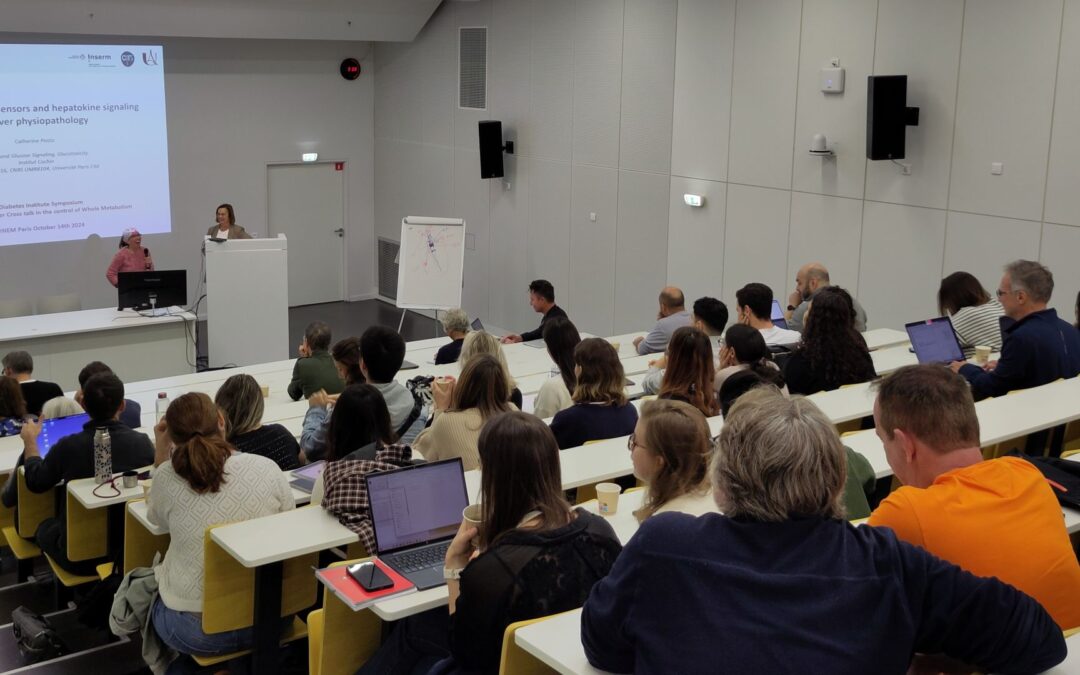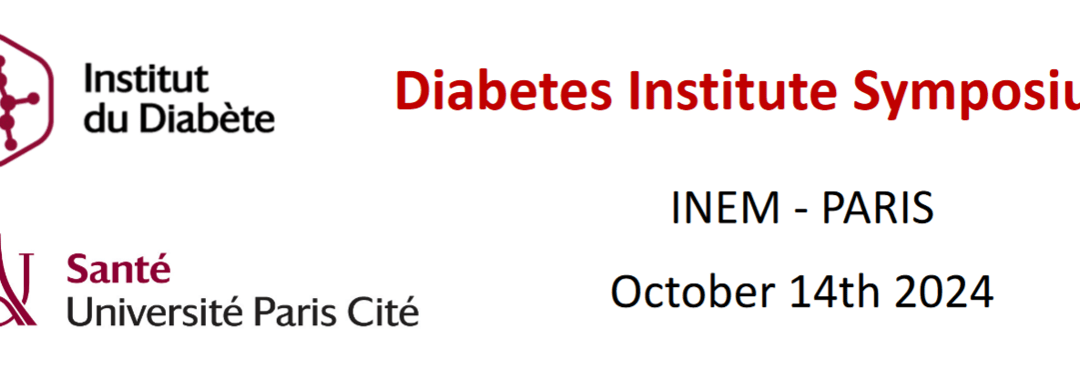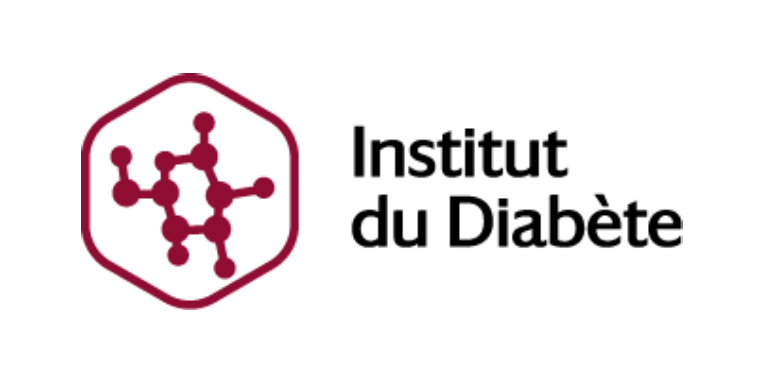Insulin resistance and metabolism: organ crosstalk
The goal of this program is to implement an inventory of the different animal models, tissues and cell cultures used.

Model of crosstalk between diverse organs and pancreatic beta cells under both physiological and insulin-resistant states. The different factors represented may have the potential to enhance glucose-stimulated insulin secretion or beta-cell proliferation (as IGF-1—insulin-like growth factor-1; GLP-1—glucagon-like peptide-1; kisspeptin1 and SCFAs—short-chain fatty acids) or negatively contribute to reduce functional beta-cell mass during type 2 diabetes progression (as leptin, CXCL10 and EVs—extracellular vesicles—from inflamed adipocytes or insulin-resistant muscle cells).
© MDPI
The teams involved in this program
Read more

Post Doctoral Position
Fully funded 2-year Post-doctoral position in the team of Dr. Ralf JOCKERS, at Institute Cochin

2024 Scientific Annual Day of the Diabetes institute
On Monday, October 14th, the annual Diabetes Institute Scientific Day took place, bringing together around 100 participants at the INEM. Opening of the Annual Scientific Day of the Diabetes Institute Maude LE GALL - Co-Director of the institute (left) Catherine POSTIC...

Diabetes Institute scientific day
The overall goal of this Diabetes Institute scientific day is to provide the most important and up-to-date research in the field of metabolism made at University Paris Cité. The workshop will focus on understanding the recent progress in adipose tissue and liver biology including metabolic and inflammatory processes in the control of the energy homeostasis. Special emphasis will be done to highlight the importance of the organ crosstalk and how signaling pathways in one tissue could affect the metabolism in other tissue.

Les jeunes de l’IHM seront à l’EASD
L’IHM Diabète est heureux d’aider les jeunes à participer à l’EASD en leur attribuant une bourse de 1000€
Rendez-vous en Septembre à Madrid !
